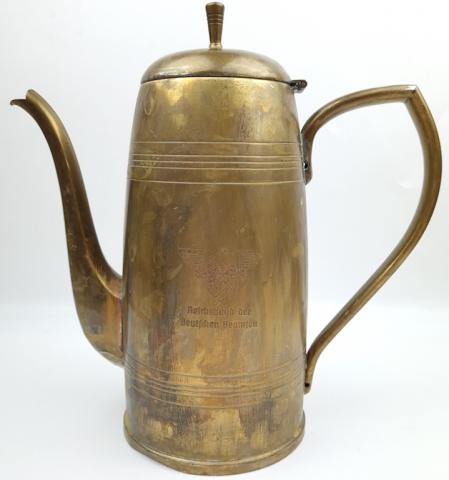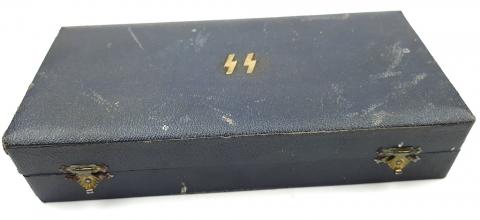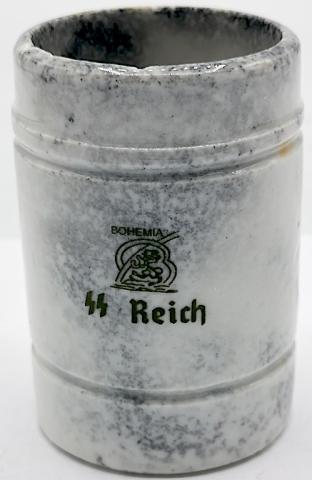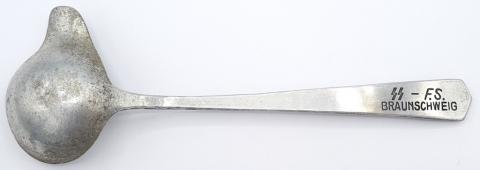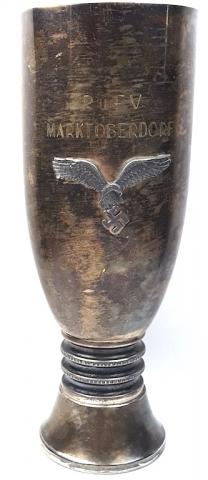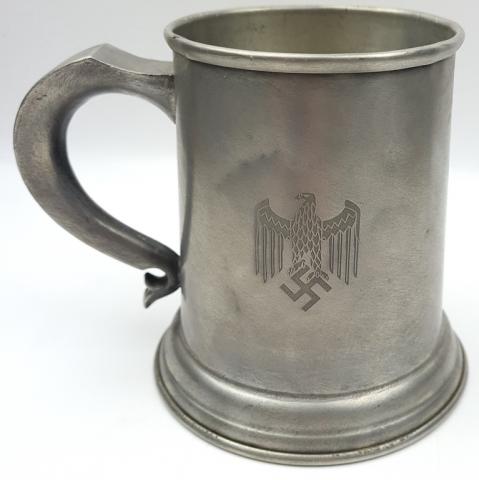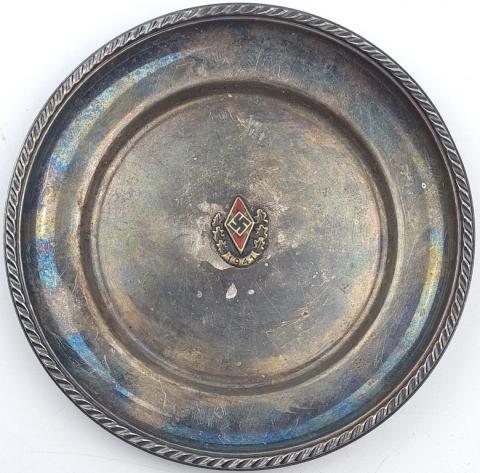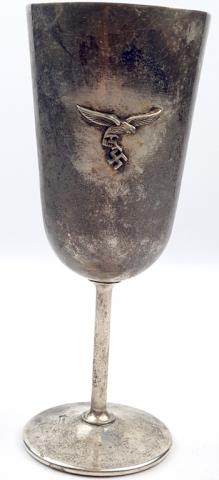Waffen SS Braunschweig SS-Junker Schools large sauce spoon marked SS
SS-Junker Schools (German SS-Junkerschulen) were leadership training facilities for officer candidates of the Schutzstaffel (SS). The term Junkerschulen was introduced by Nazi Germany in 1937, although the first facilities were established at Bad Tölz and Braunschweig in 1934 and 1935. Additional schools were founded at Klagenfurt and Posen-Treskau in 1943, and Prague in 1944. Unlike the Wehrmacht's "war schools", admission to the SS-Junker Schools did not require a secondary diploma. Training at these schools provided the groundwork for employment with the Sicherheitspolizei (SiPo; security police), the Sicherheitsdienst (SD; security service), and later for the Waffen-SS. Heinrich Himmler, head of the SS, intended for these schools to mold cadets for future service in the officer ranks of the SS.
Created to educate and mold the next generation of leadership within the SS, cadets were taught to be adaptable officers who could perform any task assigned to them, whether in a police role, at a Nazi concentration camp, as part of a fighting unit, or within the greater SS organization. Additional administrative and economic training was included at the behest of SS-Gruppenführer Oswald Pohl and the SS Main Economic and Administrative Department. Pohl intended to shape future SS officers into effective and efficient managers of the SS economics industry and insisted that supplemental training in corporate operations was integrated into the curriculum.
General military instruction over logistics and planning was provided but much of the training concentrated on small-unit tactics associated with raids, patrols, and ambushes.[13] Training an SS officer took as much as nineteen months overall and encompassed additional things like map reading, tactics, military maneuvers, political education, weapons training, physical education, combat engineering and even automobile mechanics, all of which were provided in varying degrees at additional training facilities based on the cadet's specialization.
Political and ideological indoctrination was part of the syllabus for all SS cadets but there was no merger of academic learning and military instruction like that found at West Point in the United States. Instead, personality training was stressed, which meant future SS leaders/officers were shaped above all things by a National Socialist worldview and attitude. Instruction at the Junker Schools was designed to communicate a sense of racial superiority, a connection to other dependable like-minded men, ruthlessness, and a toughness that accorded the value system of the SS. Throughout their stay during the training, cadets were constantly monitored for their "ideological reliability." It is postulated that the merger of the police with the SS was at least partly the result of their shared attendance at the SS Junker Schools. By 1945, more than 15,000 cadets from these training institutions were commissioned as officers in the Waffen-SS.
